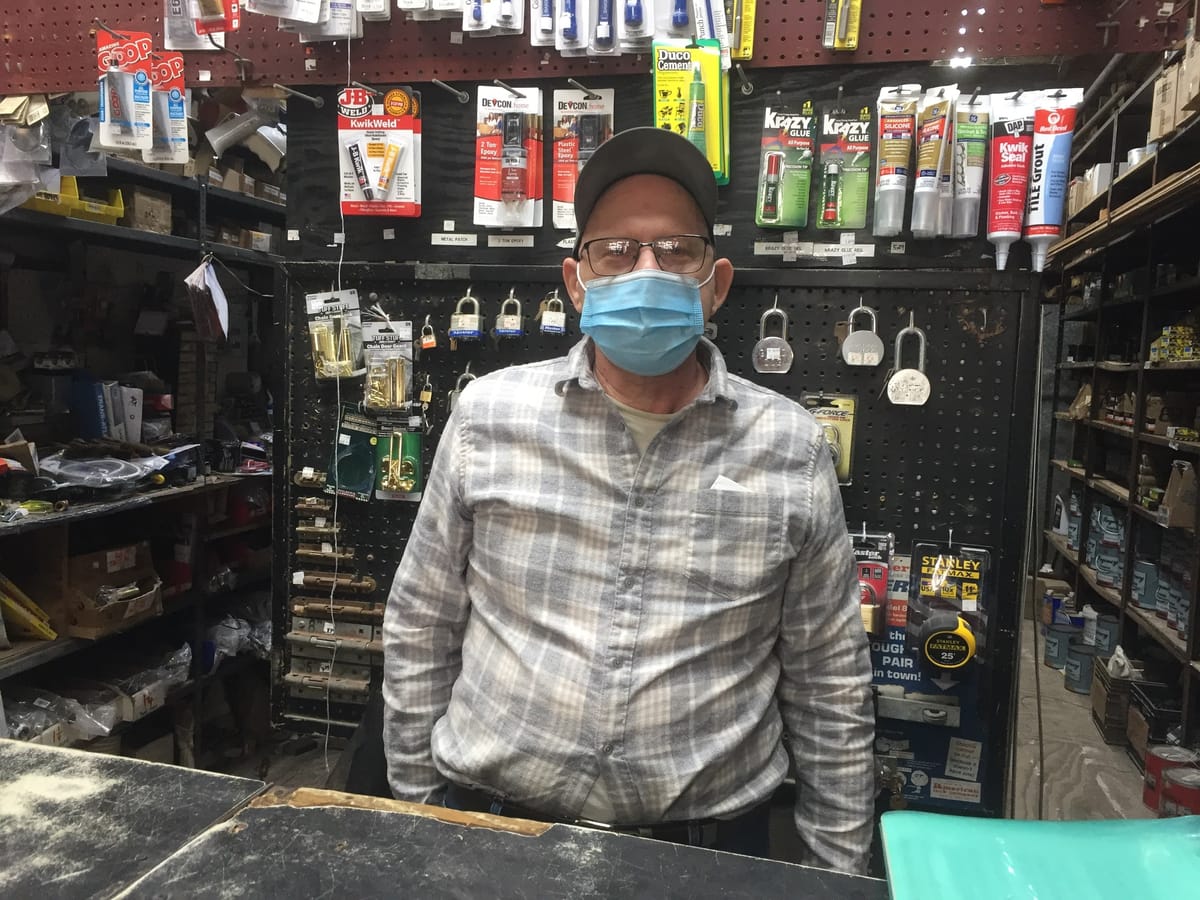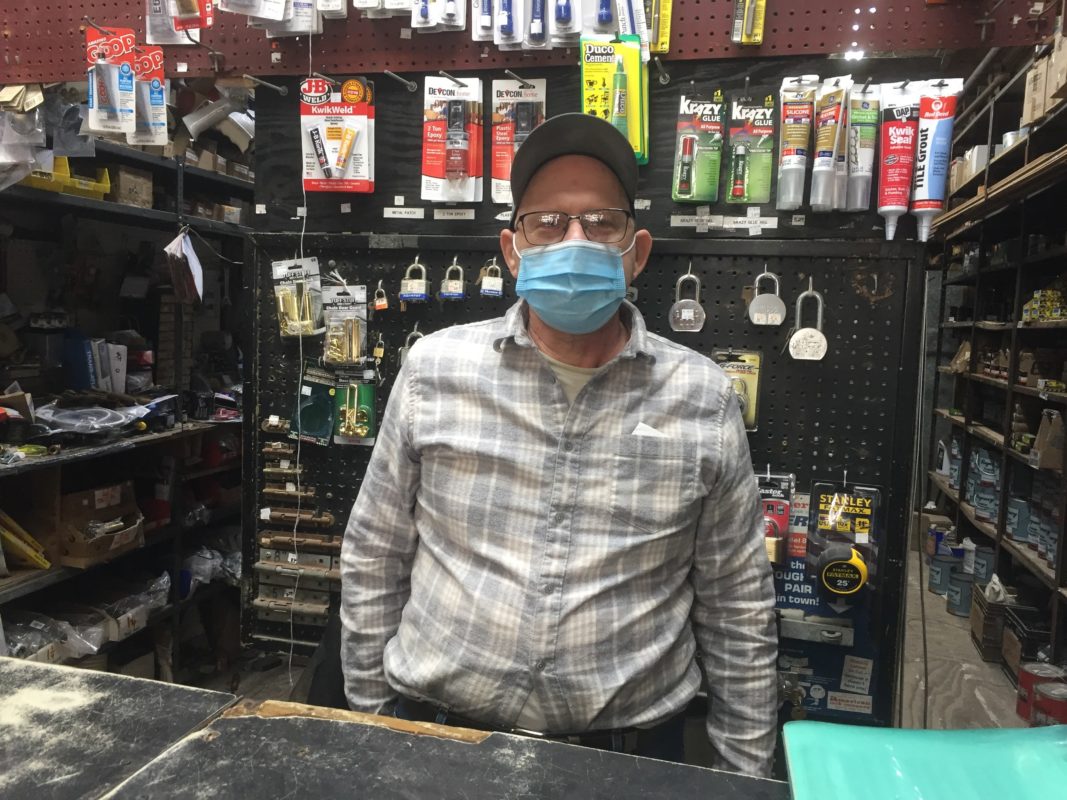Building That’s Home To Coney Island’s Oldest Store Is Up For Sale

Wilensky Hardware at 2126 Mermaid Avenue, in Coney Island, prides itself on being the oldest family-owned business in the neighborhood, dating back to 1920. A hundred years later, both the building and possibly the business, are up for sale.

The property is listed by Douglas Elliman agent Edwin Cosme for $4 million, and includes the building next door as well. The two three-story buildings each have four one-bedroom apartments on the floors above the stores. The buildings have development potential because the R6 zoning for the block would allow a new owner to build up to six floors, Cosme informed.
Steve Feinstein, who owns Wilensky Hardware and the buildings said that he isn’t sure how much longer he will be operating his store.
“I could sell my business, I’ll see if I can get any bites on the buildings and then figure it out,” Feinstein said.
The 74-year-old Feinstein has been running the store since his father-in-law died in 1971 and has worked at the store since 1970. He told Bklyner he and his wife have had normal health issues that come with aging. Both his son and daughter work jobs that he said pay more than owning the store and don’t require 60 hours of work a week. At this point, the store has become a labor of love for Feinstein.
“I could make more money now renting the store than running it,” he said.
The Wilensky Hardware store has been a generational anchor for the Coney Island community. Feinstein recalled he recently served customers who were the grandchildren of his earlier customers. Most of his customer traffic on Friday morning were people ordering copies of keys, with a few looking for various hardware parts.
Feinstein is an accidental storeowner. He grew up on West 21st Street and met his wife who lived across the street from him. His grandfather-in-law had founded the store and he started working with his father-in-law in 1970, after a short post-college stint working in a Manhattan bank and in the Army reserves.
“I never liked to commute to Manhattan, and I never fit into the corporate culture, so I started working here,” he said.
Feinstein said he has stayed in business through four floods, with the last one, Hurricane Sandy in 2012 being his worst. The six feet of floodwater moved his freezer from the back to the front of his store and cost him roughly $150,000 in lost inventory. All of his photos and older mementos were lost in the destruction.
“One of the reasons why I stayed in business after Sandy was because people needed me,” he said. The community came to him almost immediately after the destruction although he was working without electricity for ten days after the storm. “If I ever have to face something like that again, I think I’m going to just close my shop and say goodbye,” he said.
The business has changed with the times. Coney Island once had many factories that Feinstein would service, but manufacturing has since almost totally left New York City for other places in the United States and abroad. His largest client was once Pan American airlines, who had a large headquarters building near the JFK airport but went bankrupt in 1991. Now he says that roughly half his sales come from business deals with New York Health and Hospitals and the New York City Housing Authority.
When Coney Island experienced difficult times in the 1980’s he thought about moving his store out of the neighborhood, but after running the numbers it was never worth it for him to go. While Coney Island has had a bad reputation for crime, he said that in over 50 years of being the landlord of eight apartments he has only had one burglary reported to him and it was the brother-in-law of one of his tenants.
A much deeper frustration for him as a landlord in New York City has been with the regulations of the Department of Buildings. The rules are not always clear for landlords and he has had to make adjustments to avoid fines that come with violations. When tenants don’t pay rent on time, the process for evicting tenants for non-payment of rent can take 15 to 18 months going through the housing court.
Feinstein believes Coney Island has a bright future, of all the places in Brooklyn, he sees his neighborhood as one with the most development potential. The sale of his building may initiate more real estate sales in his block because a nearby vacant lot is also for sale for $1.8 million and with other purchases, a developer could significantly change the character of his block.




